Contents
Guide

Moral Injury among Returning Veterans
Moral Injury among Returning Veterans
From Thank You for Your Service to a Liberative Solidarity
Joshua Morris
Lexington Books
Lanham Boulder New York London
Published by Lexington Books
An imprint of The Rowman & Littlefield Publishing Group, Inc.
4501 Forbes Boulevard, Suite 200, Lanham, Maryland 20706
www.rowman.com
86-90 Paul Street, London EC2A 4NE
Copyright 2021 by The Rowman & Littlefield Publishing Group, Inc.
All rights reserved. No part of this book may be reproduced in any form or by any electronic or mechanical means, including information storage and retrieval systems, without written permission from the publisher, except by a reviewer who may quote passages in a review.
British Library Cataloguing in Publication Information available
Library of Congress Cataloging-in-Publication Data
Names: Morris, Joshua T., 1982 author.
Title: Moral injury among returning veterans : from thank you for your service to a liberative solidarity / Joshua Morris.
Description: Lanham : Lexington Books, [2021] | Includes bibliographical references and index. | Summary: This book expands the conversation on moral injury to include a more formal role for society in it. The author utilizes an interdisciplinary practical theology combining liberation theologies and cultural studies to interrogate how dominate ideologies can complicate moral injury reintegration among veterans Provided by publisher.
Identifiers: LCCN 2021032399 (print) | LCCN 2021032400 (ebook) | ISBN 9781793642646 (hardback) | ISBN 9781793642660 (epub)
Subjects: LCSH: WarMoral and ethical aspects. | WarPsychological aspects. | CombatPyschological aspects. | VeteransMental healthUnited States. | Veteran reintegrationUnited States. | Post-traumatic stress disorder. | Theology, Practical.
Classification: LCC U22 .M67 2021 (print) | LCC U22 (ebook) | DDC 174/.9355dc23
LC record available at https://lccn.loc.gov/2021032399
LC ebook record available at https://lccn.loc.gov/2021032400
ISBN 978-1-7936-4266-0 (paper : alk. paper)
 The paper used in this publication meets the minimum requirements of American National Standard for Information SciencesPermanence of Paper for Printed Library Materials, ANSI/NISO Z39.48-1992.
The paper used in this publication meets the minimum requirements of American National Standard for Information SciencesPermanence of Paper for Printed Library Materials, ANSI/NISO Z39.48-1992.
I am grateful for such a great cloud of witnesses, many of whom I cannot name directly. However, this book and my vocational callings would not have been possible without the following people and their enduring relational ties. To my family and friends, whether in Kansas City, Pasadena, Long Beach, or Claremont: thank you for listening, loving, and accompanying me to this point.
The dear friends who made up Unfiltered on Kandahar Airfield in 2014: Don, Jeremie, and Andrea, you each provided a normalizing andhow strange to sayenjoyable space in combat, thank you. To Tim, John, Erika: you give me hope in the Army Chaplain Corps, and even the Army overall. May we continue to remain crunchy on issues of justice and inclusion, yet joyfully resolute at the prospect of doing our part. Adam, thank you for reading early drafts, articles, and our various conversations about this work. To the soldiers and family members of the 315th Engineer Battalion, I trust that this work honors our service. Serving as your chaplain was one of the most humbling experiences of my life. May goodness and mercy follow you all the days of your life. Fabricamos! Tom, thank you for pushing me and laughing with me as you beat me at FIFA. Matt, I trust there is enough inefficiency in this book to make you proud.
A strange thing happens in graduate school: professors become colleagues who become friends. Duane and Kathleen, in particular, you guided me, pushed me, critiqued me, Skyped in Afghanistan with me, and genuinely know me and what this book represents. A mere thank you seems too shallow for the impression you have left. Similarly, fellow graduate students become friends, become colleagues, but remain dear sojourners in this vocation. Marlene, Katherine, Anna, and John, thank you for sharpening whatever analysis and caregiving competencies that follow. Burke Gerstenschlager, thank you for reading my early prospectus and providing an affirmation that I could actually write this. The music of Local Natives, The National, and Cold War Kids became the soundtrack to every season of this project, thank you for continually creating art that encourages me to do the same.
Isaac and Annette: you are profoundly loved and known. Live into the joy that you both radiate. Always remember: you are Gods beloved. Finally, to Beth: this is our sacrifice. Thank you. From countless drill weekends, TDY trips, and getting through graduate programs, we always knew this was our calling. I adore you, and my love for you only deepens and becomes more steadfast.
It was different from the other patrols, United States Army Corporal Lisa Fisher thought. The relentless heat and merciless sun were not new; perhaps this was the only constant during her deployment to southeastern Afghanistan. In full kit (battle rattle) sweating and sitting outside the small Post Exchange ( PX in military parlance) patiently waiting for her battle buddies to purchase Monster energy drinks and countless cans of chewing tobacco, she wearily picks up the latest copy of The Army Times . The headline, Woman in Combat: Not in Our Army, struck her at her core. Here she was, one of only fifty women in a brigade combat team of around 4,000 service members. After a deep exhale, she thought: I dont belong here.
After that patrol, during the arduousyet therapeuticprocess of cleaning weapons, her battle buddy continued to reflect on the experience of killing a child. He had no choice, he recalled, as the child emerged from around a corner with a suicide vest strapped to his chest. A silence fell over their scrubbing. What sort of war is this, they thought? He continued to detail for Lisa that he had a daughter about the same age as the child he shot. How will he go home and hold her? Will he ever forgive himselflet alone forget this memory? With each wipe of the cleaning rag, each of them hoping the next wipe would erase their guilt, rage, and the unremitting numbness that accompanied them. Lisa recalls this memory with hesitation. It is a hesitation born out of the scar tissue in her memory: many of her war memories contain the trauma of children. During her time in a Combat Support Hospital ( CSH ) she witnessed and cared for children the Taliban sent through Unexploded Ordnance ( UXO ) fields. When she thinks about the mutilated bodies, she notes that the Taliban killed that child when they put the vest on him. This is a lamenttinged with ragerather than just relaying fact.
The haunting reality of what follows is how does one come home from that? This book is an attempt to honor and lift up those stories. Critically, though, it is a book that asks broader questions of society. There are numerous military moral injury texts, and this book fits within that trajectory, yet there are unraveling narratives which society must hear. As Lisa came home her grandfather commented: something in you died over there. I can see it in your eyes. Through her eyes, though, she sees civilians thank and applaud her; yet, it takes years for her to truly feel home. She jots in her deployment journal:

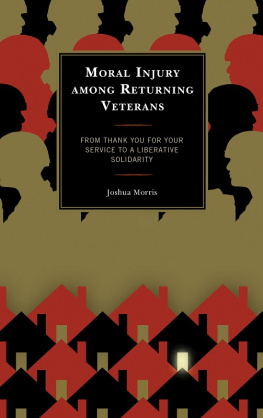
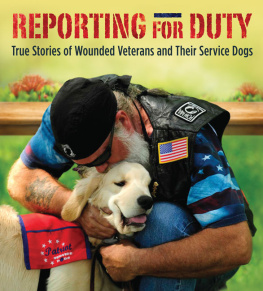
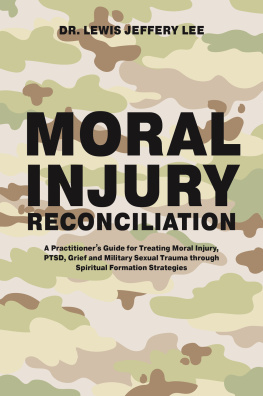
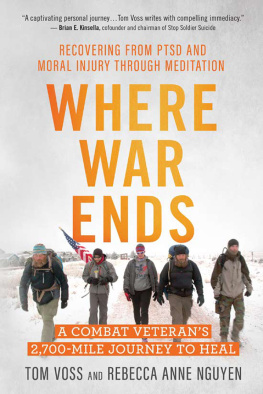

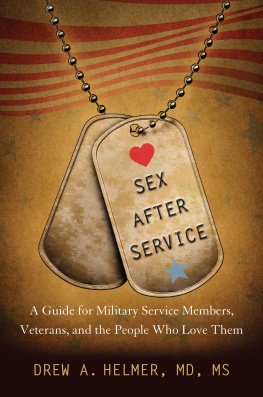
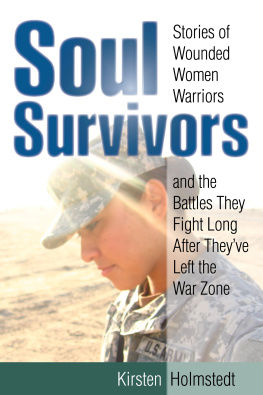
![Louis Hicks - The Civilian Lives of U.S. Veterans: Issues and Identities [2 volumes]](/uploads/posts/book/133676/thumbs/louis-hicks-the-civilian-lives-of-u-s-veterans.jpg)

 The paper used in this publication meets the minimum requirements of American National Standard for Information SciencesPermanence of Paper for Printed Library Materials, ANSI/NISO Z39.48-1992.
The paper used in this publication meets the minimum requirements of American National Standard for Information SciencesPermanence of Paper for Printed Library Materials, ANSI/NISO Z39.48-1992.